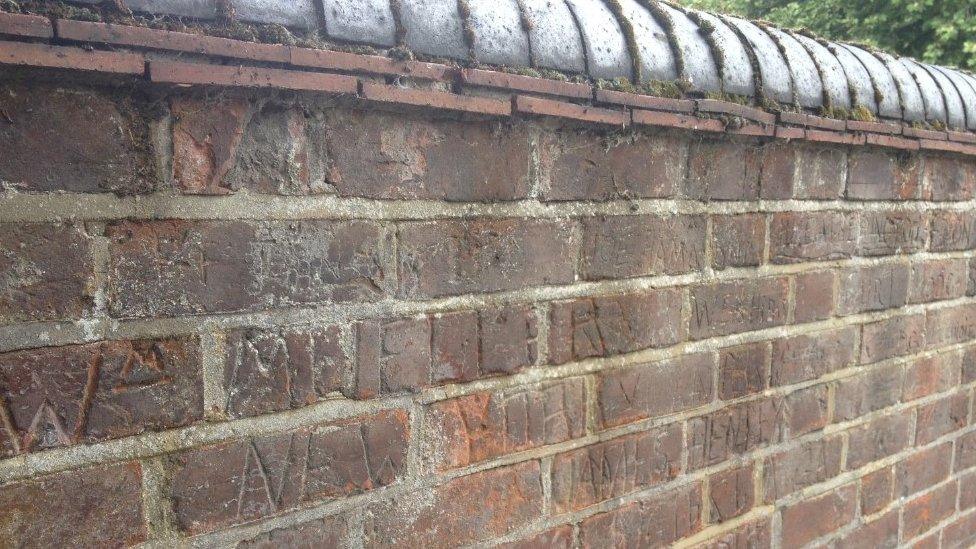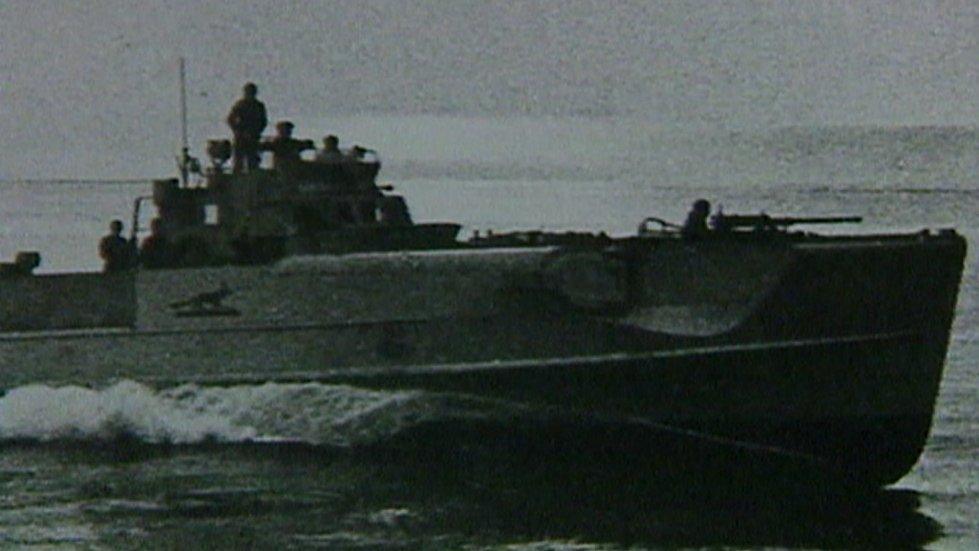Exercise Tiger: D-Day disaster ships to be protected
- Published

The ships, similar to the vessels pictured here, had a large door in the bow to transport trucks and tanks
Two ships which sank off the coast of Devon in a World War Two D-Day training exercise are to be protected wrecks, Historic England has said.
The US amphibious craft, LST-507 and LST-531, were heading to Slapton Sands for Exercise Tiger in April 1944 when they were torpedoed by German E-boats.
At least 749 US servicemen died.
The preservation organisation said the new status meant divers could visit the vessels, but the ships and their contents were now protected.
The move was approved by the Department for Digital, Culture, Media and Sport on advice of Historic England and will see the vessels added to the National Heritage List for England.

LST-531 sank after being struck by two torpedoes, resulting in the deaths of some 424 servicemen
The ill-fated exercise was carried out as a rehearsal for the D-Day landings.
Slapton Sands was being used because of its similar geography to Utah Beach, where the Americans would land for D-Day on 6 June 1944.
Several weeks earlier, on 28 April 1944, eight tank-landing ships converged in Lyme Bay for the rehearsal, heading for Slapton Sands.
But a group of E-boats from the Kriegsmarine were alerted to heavy radio traffic and intercepted the slow-moving convoy.
LST-507 was carrying nearly 500 US personnel, trucks, 22 amphibious vehicles and ammunition when it was struck by a torpedo, which started several fires, causing fuel and ammunition to also explode. More than 200 army and navy servicemen were lost.
LST-531 was struck by two torpedoes and burst into a fireball. Some 424 army and navy servicemen were lost.
The incident was only nominally reported afterwards because of the strict secrecy of D-Day.
Historic England's chief executive, Duncan Wilson, said protecting the wrecks would mean "we are remembering all of those who lost their lives in the struggle for liberty during World War Two".
- Published28 April 2019

- Published26 April 2019

- Published9 April 2019

- Published28 April 2013
